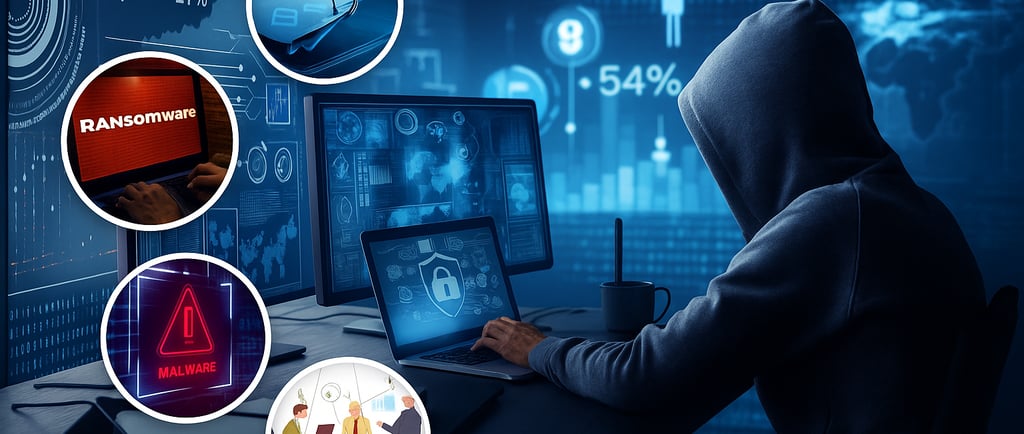Can VPNs Be Hacked? Understanding the Risks


VPNs are designed to protect your online privacy and security, but like any technology, they are not invincible. A common question people ask is: can a VPN be hacked? The short answer is yes—any system can be compromised under certain conditions. However, understanding the risks and how VPNs are attacked can help you choose the right provider and stay safe online.
How VPNs Protect You
A VPN secures your connection by:
Encrypting your traffic so it can’t be read by outsiders.
Hiding your IP address by routing traffic through a secure server.
Preventing ISP monitoring by disguising your activity.
When everything works correctly, VPNs are extremely difficult to break. But vulnerabilities exist at multiple levels.
Ways a VPN Can Be Hacked
1. Weak Encryption
Older protocols like PPTP use outdated encryption that can be cracked quickly with modern tools. If your VPN relies on weak standards, hackers could decrypt your data.
2. Vulnerable VPN Protocols
L2TP/IPsec is more secure than PPTP but slower and sometimes vulnerable to brute-force attacks.
OpenVPN and WireGuard are much stronger, but misconfiguration can still create risks.
3. DNS Leaks
If your VPN fails to route DNS requests properly, your ISP can still see what sites you visit—even if the rest of your traffic is encrypted.
4. Malware and Device Hacking
Hackers don’t always target the VPN directly. Instead, they may install spyware or trojans on your device, bypassing VPN protections completely.
5. VPN Provider Itself
If a VPN company logs data or suffers a security breach, your privacy could be compromised. Choosing a trustworthy provider is crucial.
6. Man-in-the-Middle Attacks
If a hacker compromises the VPN server itself or tricks you into connecting to a fake one, your data could be intercepted.
7. Government or ISP Pressure
In some countries, authorities force VPNs to cooperate or hand over data. This is not a “hack” in the traditional sense, but it compromises the security of users.
Famous VPN Security Incidents
Hola VPN (2015) – A free VPN service caught selling user bandwidth and exposing users to attacks.
NordVPN (2018) – One server was compromised by hackers, though no user data was leaked thanks to strong encryption.
PureVPN (2017) – Despite claiming to be “no-logs,” it helped authorities identify a user, sparking controversy.
These cases highlight the importance of transparency, audits, and strong security policies.
How Likely Is It That Your VPN Gets Hacked?
For everyday users of reputable VPNs, the risk of being hacked through the VPN itself is very low. Modern encryption like AES-256 is virtually unbreakable with current technology. The bigger risks come from:
Using free or shady VPN providers.
Poor device security (malware, weak passwords).
Misconfigured VPN apps.
How to Reduce VPN Hacking Risks
Choose a Reputable VPN
Look for providers with independent audits and proven no-logs policies.
Use Strong Protocols
Prefer OpenVPN or WireGuard over outdated ones like PPTP.
Enable Kill Switch & Leak Protection
Prevents accidental exposure if the VPN connection fails.
Keep Devices Secure
Use antivirus software, update your OS, and avoid suspicious downloads.
Avoid Free VPNs
They often lack strong encryption and may sell your data.
Check for Breaches
Stay informed about your VPN provider’s security record.
Final Thoughts
So, can a VPN be hacked? Technically, yes—but if you’re using a strong, reputable VPN with modern encryption, the risk is extremely low. More often than not, privacy breaches come from user mistakes, malware, or shady providers rather than a direct hack of the VPN tunnel.
The key is to choose wisely and use good security habits alongside your VPN. When combined with strong passwords, updated devices, and safe browsing practices, a VPN remains one of the most secure tools for online privacy today.